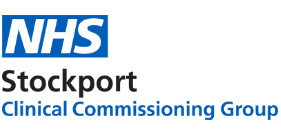Stockport Together Update
15th May 2016
A significant piece of news this week is that a revised and improved business case will need to be submitted to the Greater Manchester Health and Social Care partnership (previously named GM Devo) in June. In order to significantly increase the amount of funding offered to Stockport this will need to contain very clear information on ‘return on investment’.
The workstream project managers will be involving the enabler workstreams (i.e. workforce, business intelligence) in developing the design. There will need to be collaborative working with staff and members of the public to assure Greater Manchester of the credibility of the plans.
The finance teams and portfolio office will be going through the previous ‘value proposition’ to look at revising the financial plans.
Some of this work will be done with Salford as we work with them to collectively influence Greater Manchester (Salford are also a vanguard and received less than expected).
The latest Stockport JSNA (Joint Strategic Needs’ Assessment) is now available at www.stockportjsna.org.uk. The JSNA describes the health, care and wellbeing needs of the population of Stockport and identifies the priorities for action for the next three years.
The priorities are the major issues that commissioners and providers of health, care and other services will need to consider when making decisions. Priorities have been identified for each lifestage, from early years to older ages.
The JSNA presents the findings of the comprehensive data analysis undertaken in 2015/16. The information is available in a number of ways including topic briefings, at a glance summaries and profiles of wards and neighbourhoods.
The JSNA has been published by the Stockport Health and Wellbeing Board and produced in partnership by Stockport Council, Stockport CCG and Healthwatch Stockport. The JSNA will be used to refresh the Stockport Health and Wellbeing Strategy and to inform the development of Stockport Together, Stockport Family and the commissioning of health and care services.
The programme managers for the four workstreams have provided an update on progress:
Borough-wide services
The team has completed a prioritisation exercise, and as a result it has been agreed that the focus will be on the intermediate tier (which includes health and care services offered to patients after being discharged from a hospital and before they’re home. It’s also defined as ‘short-term, intensive intervention’.) This was selected as it was felt that it was an area which would provide demonstrable results.
There are currently 20+ services offered in Stockport across health and social care, delivered by different providers. 90% of all activity happening in intermediate tier services are focused on pulling people out of hospital, but Stockport Together activity aims to avoid people needing to arrive in hospital in the first instance wherever possible.
This activity should have a big impact on ED attendance, and would be looking to create a single point of access for intermediate tier services, which is accessible to all health and social care professionals.
Core neighbourhoods
The core neighbourhoods workstream is focusing on how resources can be delivered at a local level, to find people at risk and help them early. The aim is for people to be able to manage their own support, and to avoid unnecessary referrals into specialist services.
The core neighbourhood model will aim to support people who require multi-agency support, and will bring in providers of non-statutory services as well. The activity will aim to reshape GP services, and will look at alternative professionals delivering some of the services which have traditionally been provided by GPs in order to free up time within practices.
Healthy Communities
The healthy communities workstream complements the neighbourhood activity, but has a specific focus on ‘social movement for health’, which seeks to inspire people to take more care of their own health by promoting self-care by giving guidance about this can be done effectively.
For individuals this will be through providing the motivation, skills and confidence needed, as well encouraging the building of networks which will empower people to take control of their own health, this could include families, friends and the wider community.
The healthy communities workstreams is seeking to change how people receive services, in order to help people to help each other. This will be done through tools such as the patient activation tool, which can be used to gauge whether people can be directed to self-help support or whether they need more guidance. Ultimately, through this activity, Stockport Together would like to encourage the public to use other people than just professionals for their health and care support, including expert patients.
Acute Interface
The acute interface workstream will be working with people who have routine appointments – typically those with long-term conditions – and helping to manage peoples’ transition in and out of hospital, through working on the referral pathways.
The goal of this workstream is to make sure people only go to hospital if they need specialist care that cannot be delivered elsewhere. It will seek to identify alternatives, including community services, different used of GP appointments or using technology such as Skype to reduce the need for face-to-face sessions.
The main focus will be on managing people’s health where it should be managed in the most appropriate setting, and could include putting things in place that reduces the need for people to have traditional outpatient appointments. This will be done by identifying where the services could safely and appropriately be delivered instead of in a hospital setting.
In conjunction with the Royal College of GPs (RCGP) we will be holding a joint GP and Consultant event on 15th June. This will provide an update on the new ways of working at the same time providing opportunity for ‘live’ problem solving and networking. This follows a successful event held in March which brought together Stockport’s GPs and Consultants from Stepping Hill Hospital, to help build relationships amongst the two professions. The session will run from 5.30pm – 8pm at Pinewood
